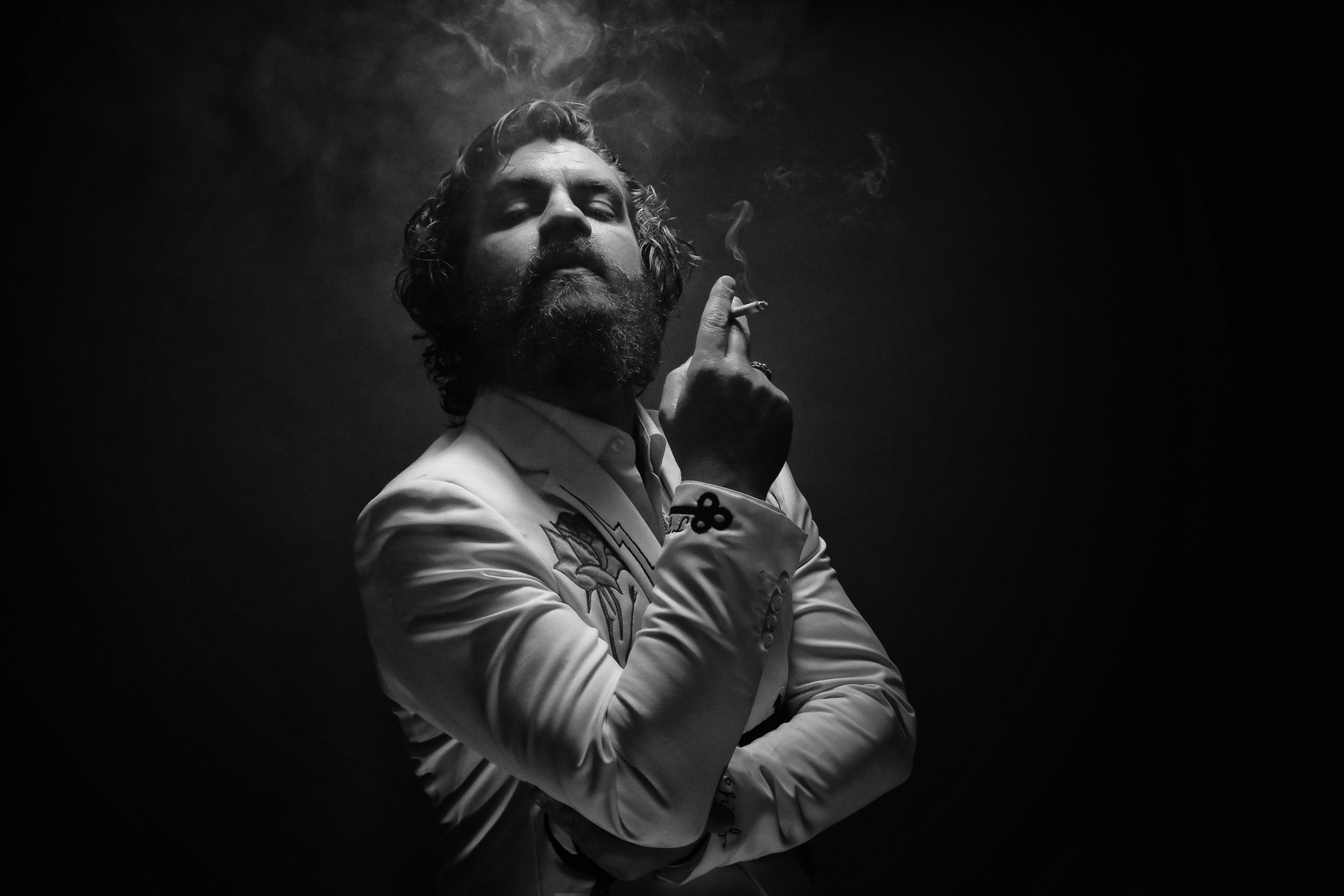
Chief White Lightning & The Good Times Band
When asked about the idea behind his debut record, Josh Logan aka Chief White Lightning responded, “when music can make someone’s life a little easier, then it’s good.” It’s a basic sentiment that few would care to admit, let alone speak of, yet with Logan, walking down the street in Long Beach, you somehow get the idea that this isn’t a con. His white suit is tattered with patches, his beard overgrown and blown out. As people stare, he smiles. “I can’t help what people think,” he says. “And it wasn’t until I stopped caring, that I actually found what it is I wanted to do.” Long Beach had just inherited one of the best, young American songwriters by accident.
A decade earlier, Logan started crafting a grunge, punk motif in Austin, TX. He formed the Blind Pets, touring for months at a time with little to no money in a twisted punk fantasy. “I got older. The gigs got rougher. I wanted something else. It felt like I wasn’t looking in the right places.” After hooking up with guitarist, collaborator Jonas Wilson, Logan started writing with a different delivery. The earlier growl had somehow morphed into an endearing howl. “It was less obvious. It felt like I was writing pop songs from my childhood. I started remembering everything I grew up on. Started getting that feeling.”
Once they had enough to work with, the two got on a plane and took off to Portland, OR. Logan wanted to try something different and thought the best way to break bad habits was to not have them around. He enlisted an old friend, producer Matt Drenik to run the gamut of fleshing out these ideas into recordable tracks. Drenik grabbed former No. 2 and Elliott Smith drummer, Paul Pulvirenti, to join and the four set out on recording what would become Chief White Lightning’s self-titled debut record.
“I wanted no ego. It was just four people in a room making a record. There wasn’t a bad idea. If someone said something, everyone listened. Nobody was talking about what it should sound like. We all came from the same school of rock and roll, so our tastes were meshing.” Their work spawned eight post-garage tracks that caught the ear of Matt Messer at El Camino. “Drenik sent them to me and I just kept going back to them, thinking about how timeless they felt. They were like these tiny vignettes into this guy’s life that I barely knew.”
From the opening Big Star lush of “Don’t Do That” to the Dave Davies isolation of “Can’t Take It Back”, Logan had created his world of heroes and losers in just under thirty minutes. There were no modern gimmicks, no over-produced tricks. It was a fierce, undeniable stab at capturing the life of a song. While the country howl of “Down Under” brings to mind the last days of The Band, the post punk burn of “City’s Alive” leaves nothing but a lonely kid finding a home in the bright lights, big city of anywhere America. It’s the juxtaposition that lands Chief White Lightning somewhere in-between the past and present, a reality that he seems fine living in.
“I try not to give too much thought about where I’m suppose to be,” he said, walking me out of Alex’s Bar into the Long Beach skyline. “This was just somewhere on the map. I got offered a trip and never went back. And why should I?”
